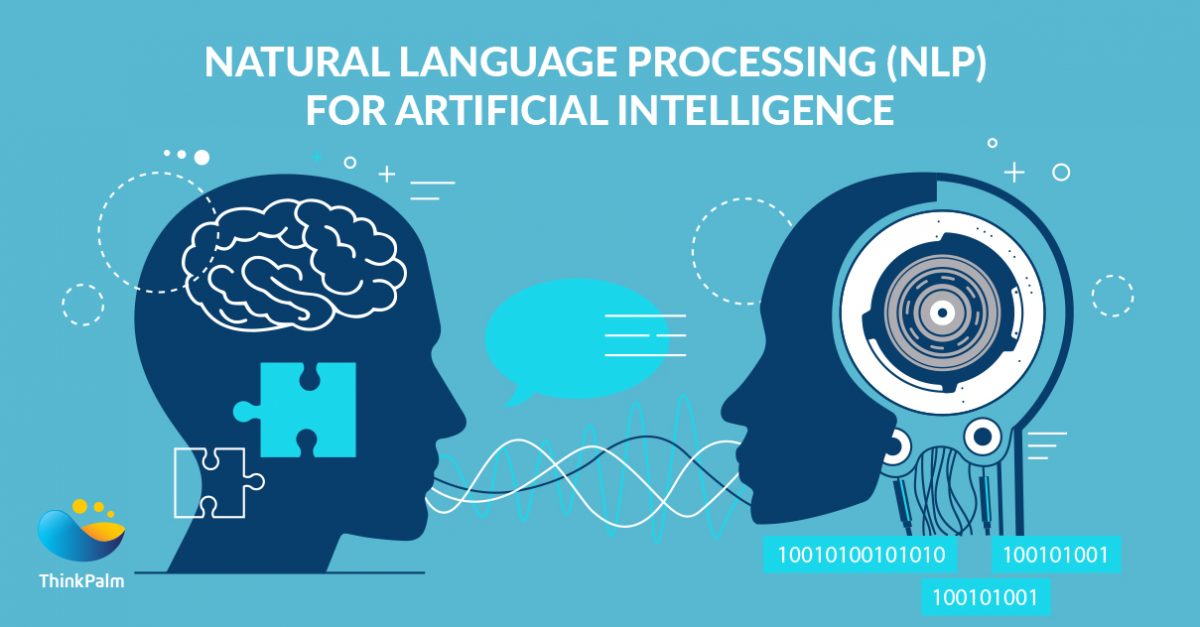DIGITAL TRANSFORMATION
Advanced English Masterclass: Exploring Technology Through Sophisticated Language
🚀 Welcome to the Pinnacle of Language Acquisition

This immersive exploration of sophisticated language through the lens of modern technology is designed specifically for 1-2 advanced students. Today, we'll examine the paradigm shift that digital transformation has precipitated across society, all while cultivating your advanced linguistic capabilities.
The integration of artificial intelligence into everyday communication represents one of the most significant linguistic developments of our era. As we navigate this complex technological landscape, advanced language skills become increasingly valuable for articulating nuanced perspectives.
🔍 YOUR MISSION: By the conclusion of this masterclass, you will incorporate nuanced vocabulary into your lexicon, master contextually-rich phrasal verbs, and develop the eloquence to articulate complex perspectives on technological issues with discernible sophistication!
🔍 Advanced AI Vocabulary Toolkit
Master these sophisticated AI terms to deepen your understanding of modern artificial intelligence:
Hover over each card to reveal definitions!
Generative AI
AI systems that can create new content like text, images, or audio, based on learned patterns.
Large Language Model
A type of AI trained on vast text datasets to understand and generate human-like language.
Multimodal AI
AI that can process and combine multiple types of data like text, images, and sound.
Natural Language Processing
AI's ability to understand, interpret, and generate human language.
Prompt Engineering
The art of crafting inputs that guide AI models to produce better, more accurate responses.
Token
A basic unit of text (like a word or part of a word) that AI uses to analyze and generate language.
Hallucination
When an AI confidently produces false or misleading information as if it were factual.
Embedding
A way to represent text, images, or other data as numerical vectors for machine learning use.
RAG
A method where AI retrieves external documents to enhance its responses with more accurate, real-time facts. Short for "Retrieval Augmented Generation"
Meticulous
Showing great attention to detail; very careful and precise
Quintessential
Representing the most perfect or typical example of a quality or class
Nuanced
Characterized by subtle differences and variations in meaning, expression, or interpretation
📚 Discussion & Reading: The Future of AI

Today we'll explore provocative questions about artificial intelligence and its future impact on society. Let's first discuss these questions as a class before revealing expert perspectives.
Key Questions About AI's Future
Let's discuss these questions before examining expert opinions:
- If you could design an AI assistant for your personal use, what would you want it to do? What limitations would you set?
Expert Insights from Dario Amodei, CEO of Anthropic
In this section, we'll listen to a leading AI expert addressing these topics. Before reading, think about and discuss each question from your own viewpoint. Click each question to reveal Dario's perspective. You can also watch the interview below, and follow along if you prefer!

Dario Amodei: Key Facts
- Co-founder and CEO of Anthropic, an AI safety company focused on developing reliable, interpretable AI systems
- Previously served as VP of Research at OpenAI, where he led the team working on GPT-2
- Holds a Ph.D. in Physics from Princeton University and completed postdoctoral work in computational neuroscience
- Published influential papers on AI safety, including "Concrete Problems in AI Safety" which helped define the field
- Advocates for responsible AI development with focus on safety, alignment, and reducing harmful capabilities
- Has raised over $1 billion in funding for Anthropic to develop Claude, a conversational AI assistant designed with safety as a priority
FROMAN: End of last year you wrote an essay, Machines of Loving Grace, that talked about some of the upside. How one could achieve a decade's worth of progress in biology, for example, in a year, how the machines were going to be as smart as all the Nobel Prize winners, which probably depresses some of them. Tell us the upside. Tell us your best-case scenario as to what AI is going to produce.
AMODEI: Yeah. So I go back by starting with the exponential. You know, if we go back to 2019, the models were barely able to give a coherent sentence or a coherent paragraph. People like me, of course, thought that was an amazing accomplishment that models were not capable of. And, you know, we had these predictions that five years from now, you know, the models are going to be generating billions of dollars of revenue. They're going to be helping us code. We can talk to them like they're—like they're human beings. They'll know as much as human beings do. And there were all these unprincipled objections of why that couldn't happen.
You know, the same exponential trends, the same arguments that predicted that, predict that if we go forward another two years, three years, maybe four years, we will get to all of this. We will get to models that are as intelligent as Nobel Prize winners across a whole bunch of fields. You won't just chat with them. They'll be able to do anything you can do on a computer. Basically, any remote work that humans do, any modality, being able to, you know, do tasks that take days, weeks, months. The kind of evocative phrase that I used for it in Machines of Loving Grace was it's like having a country of geniuses in a datacenter. Like, a country of genius remote workers, which they can't do everything, right? There are restrictions in the physical world.
And I think this still sounds crazy to many people but, you know, look back on previous exponential trends. You know, look at—look at the early days of the internet and how wild the prediction seemed, and what actually came to pass. I'm not sure of this. I would say I'm maybe 70 or 80 percent confidence. You know, it could very well be that the technology stops where it is, or stops in a few months and, you know, the essays that I've written and things I've said, you know, in events like this, people spend the next ten years laughing at me. But that would not be my bet.
FROMAN: Let's just build on that one, because on the issue of jobs, and the impact that AI is likely to have on employment, there's a pretty big debate. Where are you on the spectrum—well, before I get there—how long will it take for AI, let's say, to replace the head of a think tank? I'm asking for a friend. (Laughter.) Actually, how—we'll get to that one. That's too—where are you on the spectrum of everyone's going to be able do some really cool things, and they're going to be able to do so many more things than they're able to do now, versus everyone's going to be sitting on their sofa collecting UBI?
AMODEI: Yeah. So I think it's going to be a really multifaceted mix of those two things, that also depends on the policy choices that we make.
FROMAN: You can also answer the think-tank question if you like, but—(laughter).
AMODEI: Yeah. So, I mean, I guess I didn't—I kind of, you know, ended my answer to the last question without saying all the great things that will happen. So honestly, the thing that makes me most optimistic, before I get to jobs, is things in the biological sciences—biology, health, neuroscience. You know, I think if we look at what's happened in biology in the last hundred years, what we've solved are simple diseases. Solving viral and bacterial diseases is actually relatively easy because it's the equivalent of repelling a foreign invader in your body. Dealing with things like cancer, Alzheimer's, schizophrenia, major depression, these are system-level diseases.
If we can solve these with AI at a baseline, regardless of kind of the job situation, we will have a much better world. And I think we will even—if we get to the mental illness side of it—have a world where it is at least easier for people to find meaning. So I'm very optimistic about that.
But now, getting to kind of the job side of this, I do have a fair amount of concern about this. On one hand, I think comparative advantage is a very powerful tool. If I look at coding, programming, which is one area where AI is making the most progress, what we are finding is we are not far from the world—I think we'll be there in three to six months—where AI is writing 90 percent of the code. And then in twelve months, we may be in a world where AI is writing essentially all of the code. But the programmer still needs to specify, you know, what are the conditions of what you're doing, what is the overall app you're trying to make, what's the overall design decision? How do we collaborate with other code that's been written? You know, how do we have some common sense on whether this is a secure design or an insecure design?
So as long as there are these small pieces that a programmer, a human programmer, needs to do, the AI isn't good at, I think human productivity will actually be enhanced. But on the other hand, I think that eventually all those little islands will get picked off by AI systems. And then we will eventually reach the point where, you know, the AIs can do everything that humans can. And I think that will happen in every industry. I think it's actually better that it happens to all of us than that it happens—you know, that it kind of picks people randomly. I actually think the most societally divisive outcome is if randomly 50 percent of the jobs are suddenly done by AI, because what that means—the societal message is we're picking half—we're randomly picking half of people and saying, you are useless, you are devalued, you are unnecessary.
FROMAN: And instead we're going to say, you're all useless? (Laughter.)
AMODEI: Well, we're all going to have to have that conversation, right? Like, we're going to—we're going to have to—we're going to have to look at what is technologically possible and say, we need to think about usefulness and uselessness in a different way than we have before, right? Our current way of thinking has not been tenable. I don't know what the solution is, but it's got to be—it's got to be different than, we're all useless, right? We're all useless is a nihilistic answer. We're not going to get anywhere with that answer. We're going to have to come up with something else.
FROMAN: That's not a very optimistic picture. (Laughter.) Is what it is?
AMODEI: I actually—I would actually challenge that. You know, I think about a lot of the things that I do—you know, I spend a lot of time, for example, swimming. I spend time playing video games. I look at, like, human chess champions. You know, you might think when Deep Blue beat Kasparov, and that was almost thirty years ago, that after that it would be, like, chess would be seen as a pointless activity. But exactly the opposite has happened. Human chess champions, like Magnus Carlsen, are celebrities. I think he's even, like, a fashion model. He's like this kind of hero.
So I think there's something there where we can build—we can build a world where, you know, human life is meaningful, and humans, perhaps with the help of AIs, perhaps working with AIs, build really great things. So I am not that—I am actually not that pessimistic. But if we handle it wrongly, I think there's maybe not that much room for error.
Comprehension & Discussion Questions
- According to Amodei, what is his vision for AI capabilities in the next 2-4 years?
- What area of science does Amodei believe will benefit most significantly from AI advances?
- How does Amodei describe the future relationship between AI and human programmers?
- What does Amodei believe would be the most "societally divisive" outcome of AI adoption?
- What historical example does Amodei use to challenge the idea that AI will make human activities pointless?
- Do you agree with Amodei's optimistic or pessimistic views? Why or why not?
Watch the interview:
The video starts at 11:48 for Part 1. After discussing the questions, you may want to watch selected portions to compare with the text.
📝 Advanced Vocabulary Exercise from the Text
Match these advanced words from the text with their definitions

Results:
🔤 Tech-Talk Phrasal Verbs Challenge
Master these essential tech-related phrasal verbs to sound like a native speaker in professional tech environments!
PART A: Phrasal Verb Power Match
| Phrasal Verb | Definition | Tech Context Example |
|---|---|---|
| break down | to stop functioning; to analyze in detail | "The system broke down during the demo." |
| roll out | to introduce a new product or service | "We're rolling out the new AI assistant next month." |
| back up | to create a copy of data for security | "Always back up your files before updates." |
| come up with | to think of an idea or solution | "The team came up with a brilliant algorithm." |
| phase out | to gradually stop using | "We're phasing out the old software platform." |
PART B: Complete the Technology Story
Fill in the blanks with appropriate phrasal verbs from above to complete this tech drama:
When the system during the investor presentation, the startup founder had to quickly an explanation. Fortunately, they had all the presentation data beforehand. The company decided to the problematic feature and a new version with improved reliability.
Results:
🔮 Advanced Future Tenses in Technology Contexts
Mastering Complex Future Forms
When discussing technological development and AI, precise use of future tenses helps convey nuanced predictions about timing, sequence, and completion of future events.
Advanced Future Forms Reference
| Form | Structure | Usage | Example in AI Context |
|---|---|---|---|
| Future Continuous | will + be + verb-ing | Actions in progress at a specific point in the future | "By next year, AI systems will be performing 80% of data analysis tasks." |
| Future Perfect | will + have + past participle | Actions completed before a specific point in the future | "By 2030, AI will have revolutionized the healthcare industry completely." |
| Future Perfect Continuous | will + have + been + verb-ing | Actions that will be in progress over a period up to a specific future time | "By the end of this decade, researchers will have been developing quantum AI for over 15 years." |
| Future in the Past | would + verb (or other forms) | Describing predictions made in the past about the future | "Early computer scientists predicted that AI would surpass human intelligence by 2020." |
| Be going to | be + going to + verb | Plans or predictions with present evidence | "Based on current research, AI is going to transform the job market within five years." |
PART A: Identify the Advanced Future Forms
Read the following paragraph about the future of AI and identify the different future tense forms. Select the correct form from the dropdown menu for each highlighted phrase.
By 2035, artificial intelligence will have become1 so integrated into daily life that most people won't even notice it. Neural interfaces will be connecting2 humans to machines in ways previously only imagined in science fiction. Researchers predict that by that time, AI systems will have been operating3 autonomously for over a decade, making countless decisions without human oversight. Companies are going to employ4 vastly fewer knowledge workers, as most routine intellectual tasks will have been automated5. The 2020s tech pioneers were convinced that by mid-century, AI would enhance6 human potential rather than diminish it—though many now wonder if that prediction will come true. While we debate the implications, engineering teams will have been working7 on the next generation of cognitive architectures for 20 years, and these systems will be reshaping8 the very fabric of society.
Results:
PART B: Complete with the Correct Future Form
Fill in the blanks with the appropriate future form of the verb in parentheses. Pay attention to the time markers and context to determine which form is appropriate.
1. By the end of next year, researchers at MIT (develop) a new AI model that can understand emotional nuances.
2. Look at these prototype robots! I think they (revolutionize) manufacturing within the next five years.
3. This time next month, our team (test) the new neural interface with human subjects.
4. By 2030, AI systems (analyze) medical data for over a decade, leading to major breakthroughs.
5. The engineers estimated that by 2025, they (complete) the quantum computing project.
Results:
🎨 Creative Writing Challenge
"The Future of Work"
Write a brief paragraph (100-150 words) describing how you envision work will change in the next decade due to technological advancement. Use at least 3 phrasal verbs from our lesson and 3 vocabulary words from the reading.
CHALLENGE: After completing your paragraph, exchange it with your partner. They must identify all phrasal verbs and advanced vocabulary terms used. For each term they correctly identify, they earn a point.
🎭 Technology Ethics Role Play
Scenario: "The AI Regulatory Hearing"
You will participate in a simulated regulatory hearing about a new AI system that can predict health outcomes with 90% accuracy but raises privacy concerns.
Your position: You believe your AI health prediction system will revolutionize preventive medicine and save countless lives.
Your goals: Convince regulators to approve your system with minimal restrictions.
Key phrases to use:
- "We need to roll out this technology as quickly as possible to save lives."
- "The paradigm shift in healthcare this represents cannot be overstated."
- "We've come up with robust privacy protections."
Your position: You're concerned about the unprecedented access to personal health data this system requires.
Your goals: Ensure strong privacy protections and user consent mechanisms.
Key phrases to use:
- "We need to back up every privacy claim with concrete evidence."
- "The dichotomy between innovation and privacy is a false one."
- "Old systems of data protection need to be phased out for more robust ones."
INSTRUCTIONS: Take 5 minutes to prepare your arguments. Then conduct a 10-minute role play debate. Each participant should use all their assigned phrasal verbs and vocabulary words naturally in the conversation. After the debate, discuss which arguments were most persuasive and why.
🗣️ AI Debate Topics
Philosophical Questions About AI and Society
Choose one of the following topics for a structured debate. Each side should prepare arguments supported by examples and evidence.
- How do you think education and learning will change as AI becomes more sophisticated?
- What ethical considerations should guide AI development? Who should make these decisions?
- In what ways might AI either strengthen or weaken human connections and relationships?
- How might the relationship between humans and technology evolve over the next century?
- Should there be global regulations limiting what AI systems can be deployed for, or should innovation proceed without restrictions?
- Is human creativity fundamentally different from AI-generated content, or will that distinction eventually disappear?
Suggested Debate Format
- Opening statements: 2 minutes per side
- Rebuttal: 1 minute per side
- Questions from opponent: 2 questions each
- Final arguments: 1 minute per side
Remember to incorporate at least 3 advanced vocabulary terms and 2 phrasal verbs from today's lesson in your arguments!